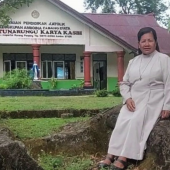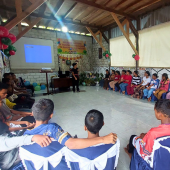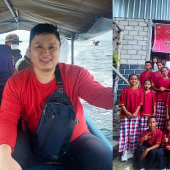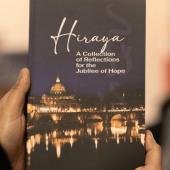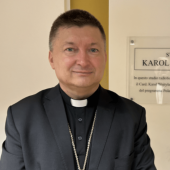Minister of Religion invites Pope to visit Indonesia
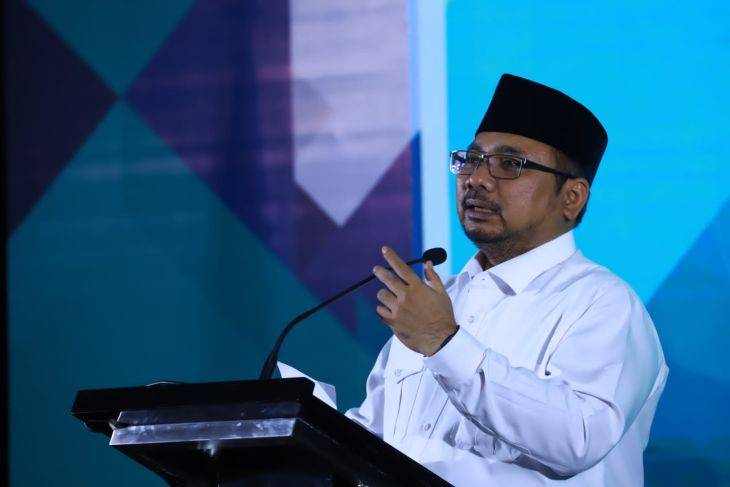
Yaqut Cholil Qoumas, Indonesia's Minister of Religion, announced his journey to the Vatican to invite Pope Francis to visit the country.
This information was delivered during a conference conducted on April 23 in Ambon, Eastern Province of Indonesia, by Minister Qoumas, Nuncio Indonesia, Archbishop Pietro Pioppo, and new Bishop Sennon Neutra in the Ambonia diocese.
Qoumas made a similar public pronouncement during Monday's national meeting of the Commission for Ecumenical and Interreligious Affairs of the Indonesian Bishops' Conference in Nusa Dua, Badung District, Bali (March 7, 2022).
He stated that at the meeting inviting Pope Francis to Indonesia, numerous significant agendas will be given to him.
“First, we would wish to inform Pope Francis about the intention to construct a new cathedral in the archipelago's capital (IKN) in Kalimantan. For this reason, we are collaborating with the Archdiocese of Samarinda's local Archbishop Yustinus Harjosusanto,” said Qoumas.
Nusantara, officially the Capital City of Nusantara, is the future capital of Indonesia, set to be inaugurated in 2024. The planned city will replace Jakarta, the national capital since 1945.
Second, the Ministry of Religious Affairs proposes to rethink the two national and Christian religious festivals commemorating the "Day of Ascension" and Easter; the title "Jesus Christ" will be legally translated as "Christ."
He stated that this was in response to the Indonesian Christian community's requests.
Previously, the Holy See announced Pope Francis' decision to visit Indonesia and East Timor in September 2020. However, the trip was canceled as a result of the Covid-19 epidemic.
The pope mentioned this at his reception of L. Amrih Jinangkung, the new Indonesian Ambassador to the Holy See, on September 12, 2020, according to a news release from the Indonesian Embassy in the Vatican Holy See.
On this auspicious occasion, Ambassador Jinangkung presented information on Indonesia's general progress and inquired about the prospect of bringing Pope Francis' planned visit to Indonesia to fruition.
Jinangkung wishes for a swift resolution to the Covid-19 outbreak and for people's lives to return to normal.
Thus, various activities that had been postponed, including Pope Francis' visit to Indonesia, can now be carried out immediately," Jinangkung stated.
Apart from seeing President Joko Widodo (Jokowi), one of the Pope's major agenda items in Indonesia, as was previously stated, was meeting with various interfaith figures in light of his concern for interfaith dialogue concerns.
Ignatius Cardinal Suharyo, chair of the Indonesian Bishops' Conference (KWI), previously stated that Pope Francis' initial priorities were twofold: marginalized groups, particularly in economically less developed countries, and interreligious dialogue.
Of course, the Pope’s visit to Indonesia is planned because he was concerned about interreligious dialogue, Cardinal Suharyo explained, adding that the tour was part of a series of visits to Timor Leste and Papua New Guinea.
Pope John Paul II paid a thirty-three-year visit to Indonesia from October 9 to 14, 1989. The Pope visited various cities in Indonesia during that time, including Jakarta, Jogjakarta, Medan, and Maumere.
Indonesia is a secular, democratic country with a majority Muslim population. The Indonesian constitution allows everyone the right to practice their religion or believe according to their own.
Additionally, this constitution states that the Indonesian government must be founded on the belief in a single God.
Indonesia is also the world's most populous Muslim-majority country, with slightly more than 87 percent of Indonesians identifying as Muslim. As many as 9.87 percent of the population is Christian, 1.69 percent is Hindu, 0.72 percent is Buddhist, and 0.56 percent is non-religious.
Radio Veritas Asia (RVA), a media platform of the Catholic Church, aims to share Christ. RVA started in 1969 as a continental Catholic radio station to serve Asian countries in their respective local language, thus earning the tag “the Voice of Asian Christianity.” Responding to the emerging context, RVA embraced media platforms to connect with the global Asian audience via its 21 language websites and various social media platforms.









